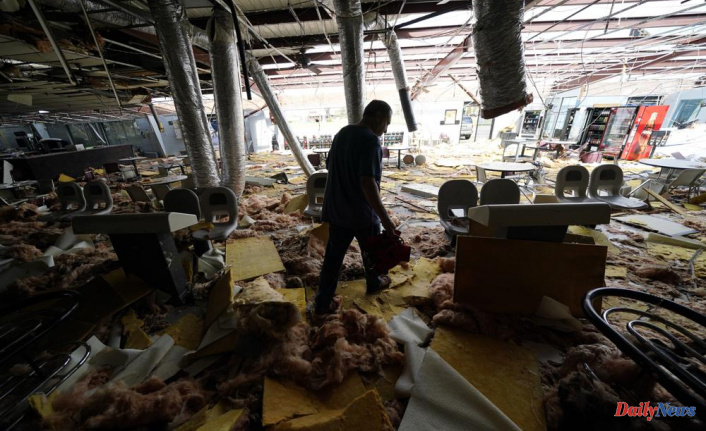The few gas stations with fuel and generator power were surrounded by long lines. People took out rotting food from refrigerators. Neighbors borrowed pool water from each other to wash their clothes or use as a bathwater.
Governor. John Bel Edwards spoke as cleanup began in the soggy area, despite the oppressive heat of the late-summer heat.
Officials in New Orleans announced seven locations where people can get a meal and air-conditioning in the city. Mayor LaToya Catrell stated that 70 transit buses were used as cooling locations. She also announced that there will be drive-thru food, water, and ice distribution points set up in the city on Wednesday.
She assured residents that there would be progress but acknowledged frustrations in the days ahead.
"We know it is hot. She said that we know that power is not available and that this will continue to be a priority.
Edwards stated that state officials were also working to establish food, water, and ice distribution. However, it would not start Tuesday. According to the governor's office, discussions are ongoing about setting up cooling stations and places where people with oxygen can plug in their machines. However, it did not provide any details as to when these might be operational.
More than 1 million homes and businesses in Louisiana and Mississippi -- including all of New Orleans -- were left without power when Ida slammed the electric grid on Sunday with its 150 mph (240 kph) winds, toppling a major transmission tower and knocking out thousands of miles of lines and hundreds of substations.
Officials estimate that more than 25,000 utility workers worked to restore electricity. However, it could take several weeks.
Some areas were also experiencing water shortages due to water treatment plants being overwhelmed by floodwaters and power outages. Federal officials stated that approximately 441,000 people lived in 17 parishes without water and another 319,000 were on boil-water advisory.
The number of deaths climbed to at least four in Louisiana and Mississippi, including two people killed Monday night when seven vehicles plunged into a 20-foot-deep (6-meter-deep) hole near Lucedale, Mississippi, where a highway had collapsed after torrential rains. Edwards stated that he anticipates that the death toll will rise.
Crews in Slidell searched for a 71 year-old man who was attacked and bitten by an alligator as he walked through Ida’s floodwaters. His wife pulled him up to the stairs of the house and paddled off to seek help. But when she returned, he was gone.
Officials from the wildlife department warned about bears, snakes and alligators searching for food in the storm's aftermath.
Edwards was accompanied by Deanne Criswell, FEMA Administrator, to witness the destruction firsthand. According to her, FEMA officials arriving Tuesday will go door to door in difficult-hit areas to register residents for assistance, especially in areas where there are widespread cell phone outages.
New Orleans was awash with drivers waiting for a chance to get in at a Costco, which was one of few places in the city that had gasoline. Other gas stations had similar lines. Drivers would pull up at the pumps and see the handles covered with plastic bags, then drive off.
Renell Debose was left in New Orleans Superdome for a week after Hurricane Katrina 2005, which claimed 1,800 lives and rendered the city almost uninhabitable. She stated that she would be willing to go without electricity for a few days, but not more.












